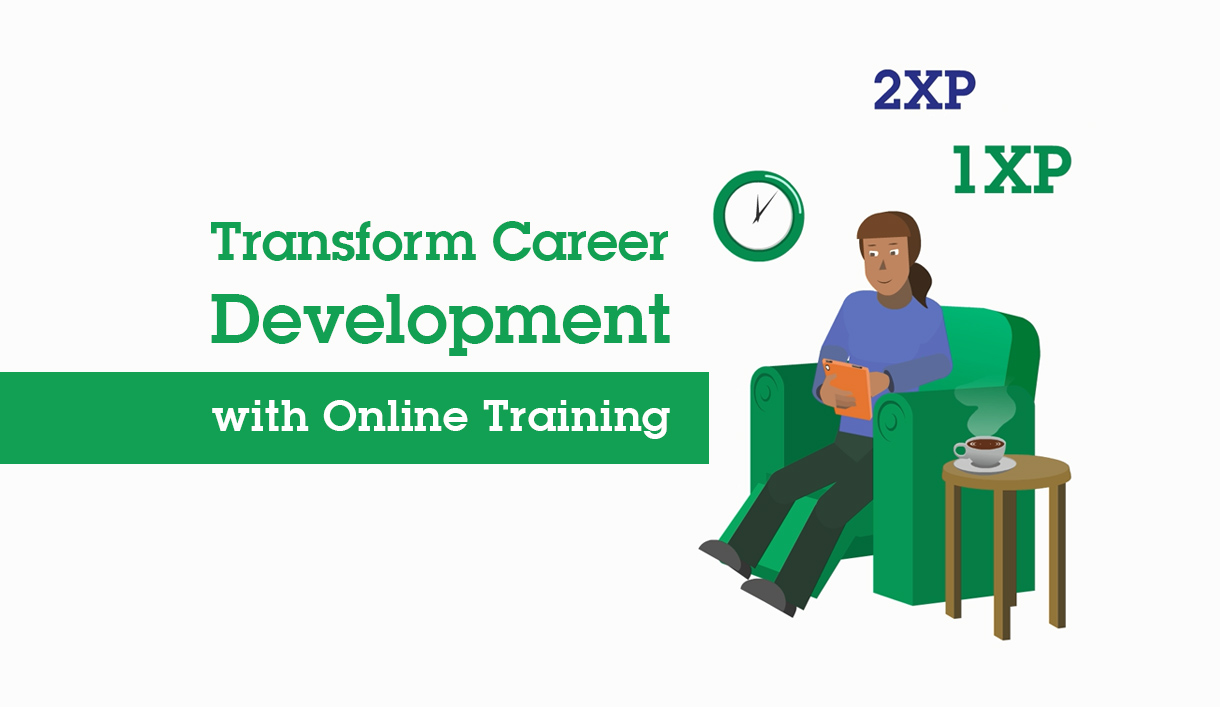Transform Career Development
Can online training be a reliable substitute?
When we talk about professional development and training, for many this may conjure up imagery of dreary classrooms, long talks, stacks of small print textbooks and gruelling travel commitments.
Indeed, it’s these rigid perceptions of professional training that may deter many from seeking to develop their careers, daunted by imagined requirements that aren’t necessarily the reality.
So, when we talk about “e-Learning” what kind of imagery does that conjure up?
At the very least you’ve heard the term thrown around, but do you really know what this contemporary means of study has to offer? Can online training be a reliable substitute for traditional classroom courses?
Put simply; could e-Learning transform career development as we know it?
The case for e-Learning
It seems safe to assume that we are presently in something of culture transition where offline means of purchase, communication, media and news consumption are being rapidly replaced by online alternatives.
It’s no shocker to say that “convenience is king” and it’s this principal which is driving the wider revolution. Narrowing the focus specifically around e-Learning based study it’s not hard to see why there is so much enthusiasm and excitement surrounding the sector.
Considering the case for e-Learning; remote access to e-Learning courses and flexible time management are two of the most immediate draws.
For students who aren’t based close to a classroom course, being able to login online and study from anywhere with an internet connection has instant appeal. This in turn is beneficial for time management as it eliminates the need for travel and to adhere to a set class schedule in most cases.
Regarding the learning itself, offering students the opportunity to tailor their study approach is another positive.
Where classroom training demands that learners keep pace with a short, potentially fast paced session, study through an online platform allows them to determine their own pace. Depending on the course in question they may also be given the chance to customise how they test themselves in preparation for qualification.
One concern occasionally raised in relation to e-Learning is the legitimacy of online courses and their qualifications. As with any new field there are cases of exploitation, but with some basic common sense and small amount of research it shouldn’t be too difficult to determine whether a provider is legitimate or not.
The case for classrooms
Examining the case for classrooms, for some there is undeniable appeal in having study dictated by a tutor. e-Learning by comparison is admittedly reliant on self-managed study by comparison.
Having so much freedom can be a double-edged sword in this respect and if a pupil isn’t suitably motivated the resources available may go to waste.
On the other hand, online tutor support can be another facet of e-Learning, providing access to supporting professionals through email, forums or live chat. If guidance is made available in this manner, then an effective balance can be struck between self-managed and taught course studies.
Meanwhile, the more problematic aspects of classroom courses may prove to be a barrier for many wishing to attend.
In contrast to e-Learning’s flexibility, attending a series of classroom sessions requires a firm commitment to a set schedule. This in turn may also require extensive travel and accommodation costs for the duration.
These demands set alongside a potentially very busy all-or-nothing study schedule may put off promising professional who might otherwise excel in their respective field.
The Present and Future of e-Learning
Examining the present and future of e-Learning the online training revolution shows no signs of slowing down.
Following market growth past a predicted £81 Billion/$107 Billion in 2015, ‘Research and Markets’ has forecasted e-Learning market value will triple to £248 Billion/$325 Billion by 2025*1.
Elsewhere, studies have demonstrated clear improvements for those undertaking online training. Employees have been shown to use 40-60% less time learning material online than they would within a typical classroom setting*2.
Retention rates have also been shown to go up dramatically for e-Learning students, averaging between 25-60% compared to the considerably lower average of training in person at 8-10%*2.
So, returning to the opening question; yes. e-Learning can, will and already has begun transforming career development around the globe. Whether it be new skills or brand-new roles, professional opportunities have never been so accessible and will only continue to expand as the industry grows.
SHEilds Ltd.
–
Sources
*2 https://www.shiftelearning.com/blog/bid/301248/15-facts-and-stats-that-reveal-the-power-of-elearning








Leave a Reply
Want to join the discussion?Feel free to contribute!